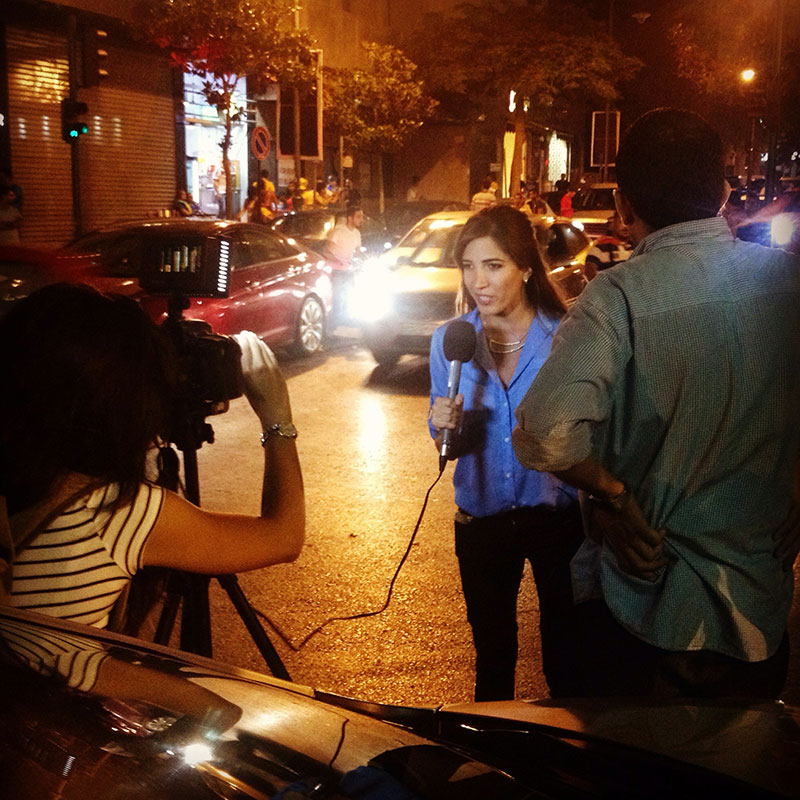
Ask BBC News’ Suzanne Kianpour (IPJ 09) how she got her position as Capitol Hill and foreign affairs producer in the internationally recognized news service, she will say, “hard work, luck and mentorship.” Also, her experiences as a TFAS student in the Institute on Political Journalism (IPJ) program and internships at news organizations – including one at Al-Arabiya arranged by TFAS – played a role she claims was pivotal.
“TFAS brought me to Washington and none of what happened in my career might have happened if not for TFAS,” said Kianpour.
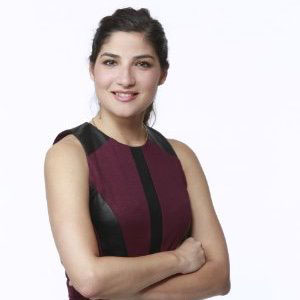
Rym Momtaz (IPJ 05, CSF 07), a producer for ABC News, will tell you she is succeeding in her role because of skills she developed while still in school, including her first exposure to people very different from herself in her two TFAS programs, IPJ and the Capital Semester Fall (CSF) program. She also got her first chance to work at ABC through her time at TFAS, when she was placed in an internship at“Nightline.”
Faysal Itani (IIPES 03, CSS 06), a resident senior fellow at the Atlantic Council will say he first realized an interest in politics could become a profession while a student at the TFAS International Institute for Political and Economic Studies (IIPES) and later as a Capital Semester Spring (CSS) student.
Each will say they honed skills and developed ways of thinking during their TFAS experience that they still use in their work to this day – work which has included some of the most harrowing tasks out there, reporting on and analyzing brutal international conflicts.
I learned once a human is standing in front of you, they will listen to you and can become your friend.”
– Rym Momtaz (IPJ 05, CSF 07)
TFAS staff recently caught up with each of these experts to ask them about what they do, and how.
The Road to Becoming an Expert
Kianpour studied international affairs at Emory University, with a concentration in conflict and security in the Middle East. As a college student, she interned at NBC’s Washington bureau, but says her interest in international news began in the fourth grade. That’s when she and other students were tasked with bringing in newspaper clippings and summarizing them for the class. Being from a Persian and Sicilian background also helped.
When she was 15, Kianpour remembers coming to D.C. for the first time with her father. She was so impressed with the city, she told him she wanted to live here. She made her first step toward that goal through TFAS, the summer after she graduated from university.
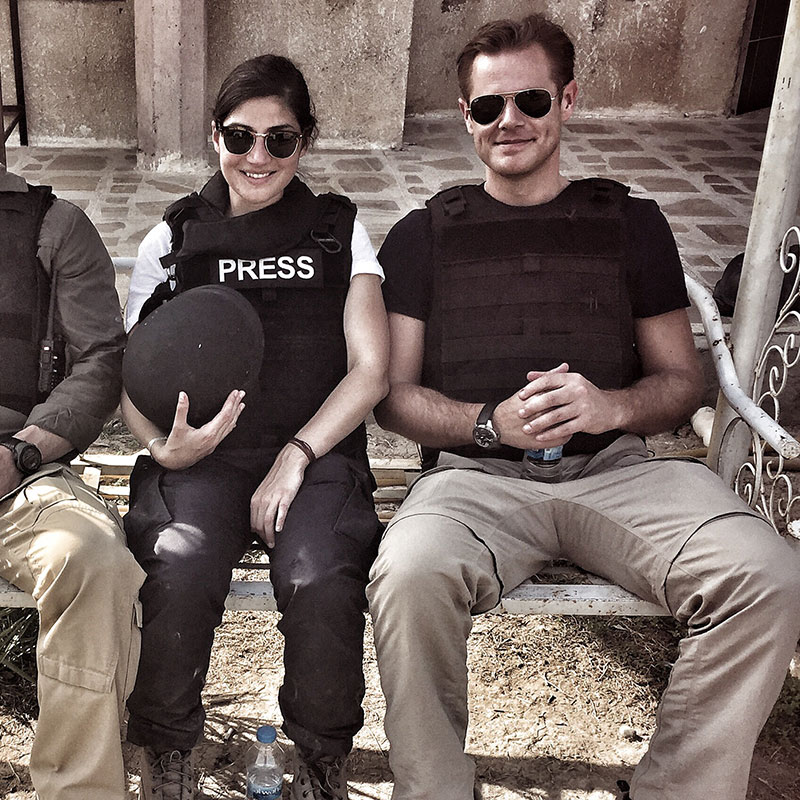
When we caught up with Momtaz, she was in London reporting on European elections. The TFAS alumna grew up in Lebanon but traveled from an early age and attended the American University in Beirut. Growing up in a very international environment, she only ever met people who had also traveled extensively and viewed the world much the same way she did.
“The TFAS program was the first time I was exposed to and surrounded by people with very different opinions,” said Momtaz. “But I learned once a human is standing in front of you, they will listen to you and can become your friend, despite your differences.”
Momtaz has become an expert in extremism for ABC News and is researching and reporting on ISIS, among many other topics, and her byline is being featured more and more prominently as of late. Her language skills in French, English and Arabic have come in handy throughout her career. It is also helpful, she says, that she has learned to listen and keep an open mind, especially when talking to the people she encounters while reporting from conflict zones.
Itani grew up in Lebanon, while it was under Syrian and Israeli military occupation. He lived on the Syrian side. He had a foot in both worlds, however, since his mother was originally Syrian and became a naturalized Lebanese citizen.
I can’t overstate how important the [TFAS] experience was. For the first time, I realized a personal interest in politics could become a profession – it was a bit of an awakening.”
– Faysal Itani (IIPES 03, CSS 06)
Itani studied business and psychology at the American University in Beirut, then completed his master’s degree in international relations with a focus on the Middle East at Johns Hopkins University’s School of Advanced International Studies (SAIS). In between, his participated in the TFAS program in Crete, Greece, then spent five months in Washington in the Capital Semester program as a bridge from university to graduate school.
“I can’t overstate how important the [TFAS] experience was. For the first time, I realized a personal interest in politics could become a profession – it was a bit of an awakening,” he said.
If the name Faysal Itani is familiar, that is because he is fast becoming a recognized Syria expert as a resident senior fellow at the Rafik Hariri Center for the Middle East at the Atlantic Council, a Washington, D.C. think tank. As circumstances in Syria deteriorate, national news outlets, such as The New York Times and National Public Radio, are turning more and more to Itani’s expertise on the region for viewpoints to help their audience understand current events.
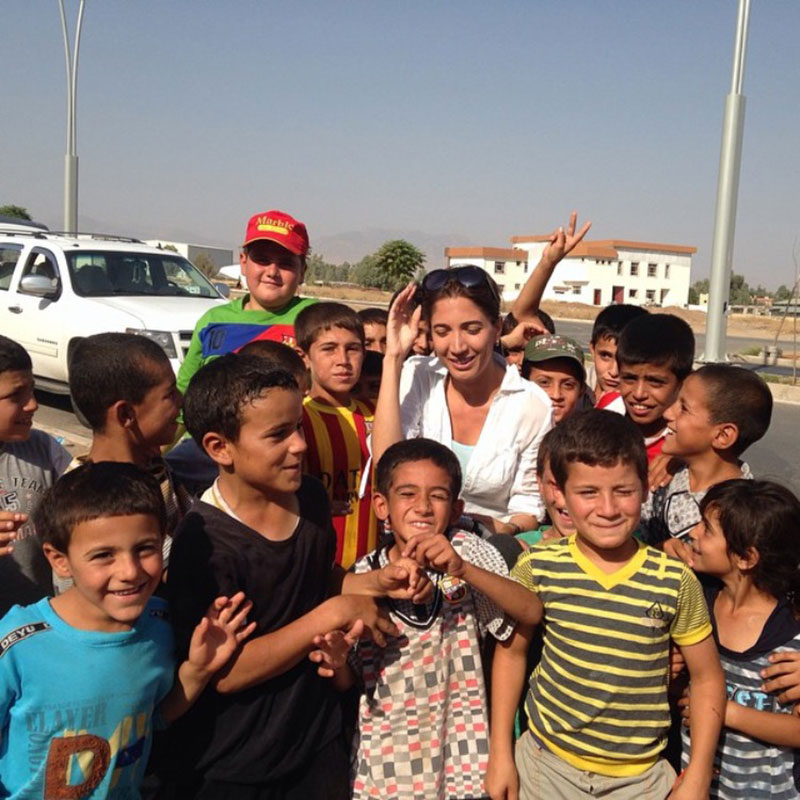
Changes in Techniques, Changes in Perspective
As journalists, both Kianpour and Momtaz have had pivotal experiences in their careers, when they had to draw on all their training and knowledge to perform their jobs at the apex of their abilities. For Kianpour, one was at the scene of a suicide bombing.
She had told her bureau chief she needed to experience “the sharp edge of U.S. foreign policy, to see all sides of the story.” During one assignment, she was sent to report from the site of a suicide bombing in southern Beirut, which had been at a café where people – including women and children – had gathered for a World Cup watch party. She saw blood spattered on the wall in the shape of a human body, but outside the café and around the neighborhood, women were walking and children were playing, men were smoking hookah and playing backgammon, as though everything were normal. She interviewed the owner of the café at the scene who told her, “It’s not my time to die, so I’m going to live,” in response to the situation.
My job is to tell the story and do it justice for the people in the area and affected by the conflict. I’m hoping to send a message back to the people who can do something about it.”
– Suzanne Kianpour (IPJ 09)
She saw how that mentality could take root, and even felt a hint of it herself. “There’s an omnipresent danger you don’t really see. There have been times where I’ve been in a flak jacket and helmet, but it was weird, because you don’t see the danger right in front of you,” she said.
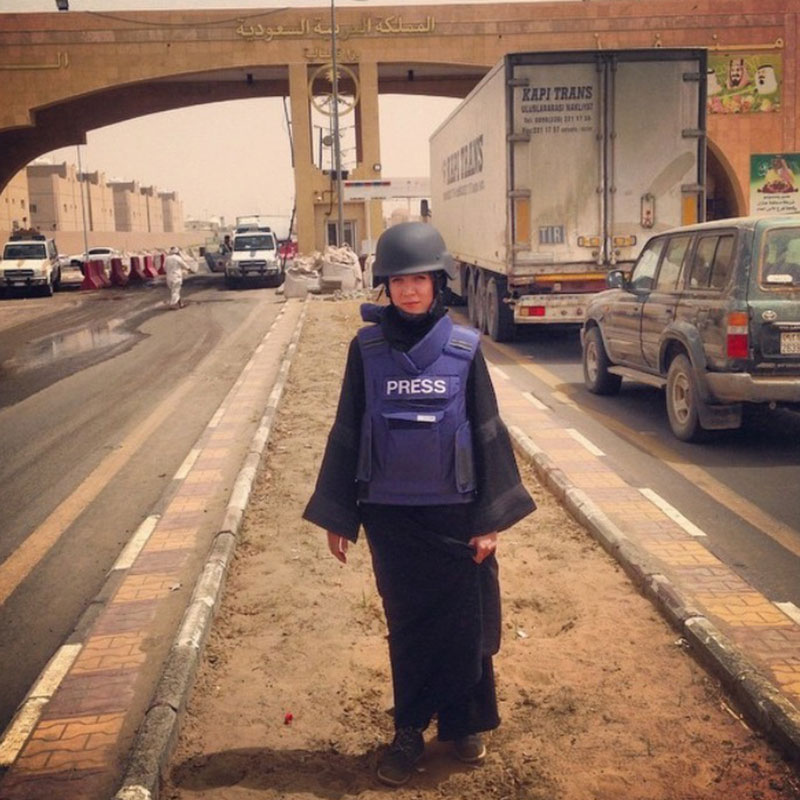
“Working in a conflict zone is more than dodging bullets,” she said. “My job is to tell the story and do it justice for the people in the area and affected by the conflict. I’m hoping to send a message back to the people who can do something about it.”
Momtaz has also reported from many active conflict zones and faced the same dangers. She said, “I learned you have to be reactive and have your wits about you. You have to stay calm and anchored in your decision-making, especially in unfamiliar and jarring situations.”
One of her pivotal experiences, however – when she realized she was doing work that was more broad-reaching and impactful than she could have imagined – was when she was reporting on the Syrian civil war from a distance, while based in the U.S.
Years into the Syrian civil war, she and her colleagues were trying to figure out how to keep the conflict relevant for people in the U.S. They needed to cut through the horror fatigue that was affecting the viewership. They knew they couldn’t continue to cover it in the same way and started to think what they could do – and how.
In January of 2016, through a Syrian contact, Momtaz was introduced to a woman in the city of Madaya. She was by all appearances an average woman, who had had a normal life before the civil war broke out; she was a wife and mother of five children. Momtaz began to engage her to talk about what her daily life was like. Then the idea came – a graphic novel-style news report.
“We’re a visual company, at the end of the day,” she said. “I grew up reading comics and so did a colleague. Marvel Comics is a sister company, so my colleague and I started thinking about the potential of a collaboration. When we pitched the idea, Marvel was super gracious and enthusiastic about collaborating.”
That is how the “Madaya Mom” graphic story came to be. From Momtaz’s text conversations with the mother in Madaya, the story unfolded. Marvel chose a Croatian artist, Dalibor Talajic – who had survived the breakup of Yugoslavia in the 90s and understood the conflict in Syria in a way few would – to illustrate the story and bring it to life. The result was posted on ABC News’ website and is free to read. For their work on the graphic story, Momtaz and her ABC and Marvel collaborators recently received the 2016 Sigma Delta Chi Award from the Society of Professional Journalists for online reporting in the e-books category.
“We were blown away by the reaction. Teen Vogue covered it and they don’t cover Syria. It was getting people interested in the issue,” Momtaz said.
Although the Madaya mother – who remains anonymous throughout the story, for her own protection – lived through harrowing experiences and a siege on Madaya that left the citizens starving, she and her family are still alive and in touch with Momtaz. Meanwhile, Momtaz, her ABC News colleagues and the Marvel collaborators are now working on part two of the “Madaya Mom” story, bringing the audience up to speed on what has been happening on the ground in Syria, and hopefully inspiring readers to take action.
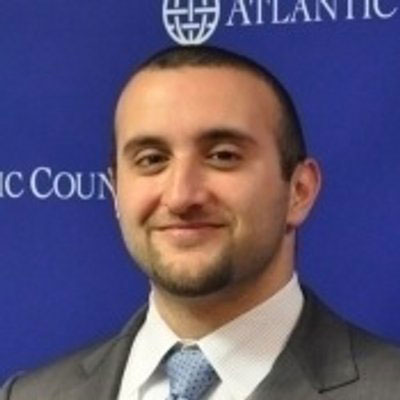
Inspiring people to take action is also what Itani does in his role as a senior fellow at the Atlantic Council. Compared to a journalist, he is not just free to, but required to, take a stance and openly advocate for a position. Also, similar to the “Madaya Mom” project, technology enables him to do work that would not have been possible in the past. A pivotal moment came when the Syrian conflict first broke out.
“The Syrian civil war is one of the first wars happening in the open,” Itani said, referring to the proliferation of amateur news coverage of the conflict on social media. Itani gave the example of chemical weapons attacks. Before the age of social media, people relied entirely on journalists and eye-witnesses, the former of whom are not always able to enter conflict zones, the latter of whom are not always able to leave.
Now, Itani said, if there is a chemical weapons attack, people on the ground are recording video clips with their phones, tweeting and posting what they see, so analysts are able to crowd-source information such as the type of chemical material and source of the chemical rocket.
“You have to be careful, though, that you don’t immediately believe something just because it confirms your biases,” said Itani. “You do get wedded to your analysis position.”
He admits that the proliferation of social media, blogs and small-name news sites is a mixed blessing. Truth and untruth exist side by side on the internet, but he is able to find information he trusts through extensive reading and through cultivating reliable contacts on the ground. He said, “If you read as much as possible from as many angles as possible, then you form a framework for processing new information. Being from the region and having intuitive, experiential knowledge that allows me to see how people think helps,” he said.
He admitted, however, the task of absorbing horrifying information and recommending action takes its toll. However, “training and expertise carries you through,” he said.
“Having a common humanity with the people in Syria and being from the area makes it difficult, but when you spend a lot of time with these problems, you come to terms with the horror of it,” he said. “Like a trauma doctor, you do your job. And some empathy makes you do your job better – you understand how people feel on the ground.”
Advice to Those Coming Along Behind
In honor of the milestone of TFAS reaching its 50th year and looking forward to the next 50, each of these outstanding alumni offered advice to students hoping to follow similar paths – or any path requiring the “hard work, luck and mentorship” that Kianpour related in her story.
“Life is what you make of it and so is TFAS,” Kianpour said. “TFAS provides access to people and places that can lead you to your dream job. But it’s up to you to harness what’s been made available to you and turn it into your own. Stay hungry.”
TFAS allowed us to explore Washington in a way that was intriguing. We saw how power is wielded and exercised in Washington. It’s very important to understand how the repercussions of decisions made in Washington affect the world.”
– Rym Momtaz
Momtaz cited important discoveries she made during her time in TFAS programs as lessons useful for all students.
“TFAS allowed us to explore Washington in a way that was intriguing,” she said. “We saw how power is wielded and exercised in Washington. It’s very important to understand how the repercussions of decisions made in Washington affect the world.”
Momtaz encouraged students to “Keep engaging in debate. Keep exploring the U.S. and the world and most importantly, keep listening to others.”
Itani offered these words of wisdom: “Make sure you are doing the Washington things – make friends, make contacts, meet people, that will help you most. Network, yes, but it’s more important to make friends. Friends are how I got my current job.”
“I see the new generation coming to D.C. is extremely high-strung about their careers,” he went on. “Probably because of the economy, but I want to say to them, ‘relax and enjoy the show.’ Get to know people.”
As a last piece of advice, Itani offers this: “Do your reading! That makes the academics much more valuable and fulfilling.”

